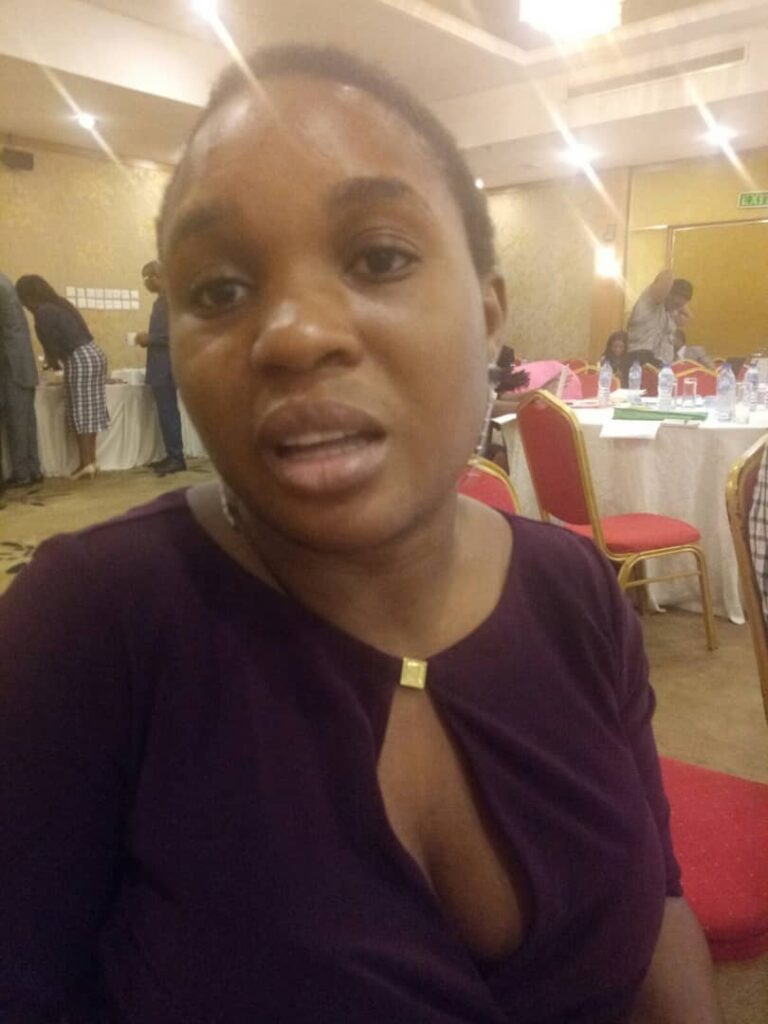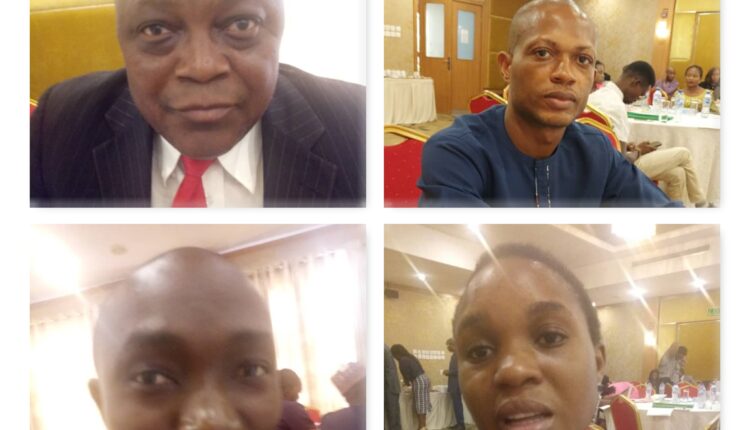Stakeholders applaud ACAN on Ethics and Integrity Policy project
|
Getting your Trinity Audio player ready...
|
The Anti-Corruption Academy of Nigeria (ACAN), a research and training arm of Independent Corrupt Practices and Other Related Offences Commission (ICPC), in its bid to domesticate strategic implementation of National Ethics and Integrity Policy (NEIP), on norm and behaviour change, brought together over 58 groups.
The number covers a wide spectrum of the society representing tradition, religious institutions as well as organized private sector, the CSOs.
Professor Olatunde Babawale, Provost of ACAN had earlier said the training was to help equip the groups with the know-how to implement NEIP “with view of stimulating desirable behaviour change”.
It is Provost’s expectation that after the training, the trainees will “imbibe what they have learnt, and adapt the strategies recommended collectively to their own situations in their various organizations. Then, use the knowledge to cascade trainings in their organization to others, so that we can have the idea of popularizing the implementation of National Ethics and Integrity Policy, across the broad spectrum of our society.”
Those who spoke to Apex News Exclusive at the sidelines of the training session, said it is an awaited dream that must be taken with all seriousness, coming at the time Nigeria needed it most.

Suleiman Mukthar, Strategic Communications Manager, Accountability Lab (Nigeria office) For Mukthar, the usefulness of the training programme cannot be overemphasized, especially, coming as a saving grace to his organization that has been working on popularizing NEIP since last year.
“Before now, we broke down NEIP into smaller bits of content and shared it with various MDAs which were well received. It was about 5000 copies, which really helped in popularizing the policy. But now there is a change in government, ushering the new administration. What we intend to do is to see how we can help them [incoming administration] set agenda where NEIP should be at the core of their activities for the next four years. So, while we were working on it, this training came up. So, I am here, I have listened to the experts demystified the basic tenets in this policy which has helped me to understand it more and it is going to be useful to what we have already started doing,” he stated.
In Kwara State, Abdulkadir Yusuf Esq, the Director of Investigation and Public Petition, Elite Network for Sustainable Development, (ENETSUD) said the training has helped to shape the activities of the Kwara-based CSO.
He said ACAN-ICPC thinking is in-line with ENETSUD’s practice.
“We believe that corruption can’t only be fought with the Law-and-Order approach, there must be attitudinal change on the part of the people. The level at which these corrupt practices has eaten deep into our nation, if we are to go only by our laws, definitely our courts will be filled up,” he said, adding that attitudinal change is the new fad.

Sefunmi Oluwole who represented Datalead Africa at the training programme said NEIP is the social engineering Nigeria needed now, adding that the physically-challenge persons will be fully incorporated.
“The training cuts across different strata of the society and we at Datalead will take this down to our members letting them know that behavioural change is paramount in everything they do. This is very important because people with disability and women make up a large portion of our population base. And if this message is translated to them, it will create a great impact in attitudinal change this policy intends to achieve,” she stated.
She applauded ACAN-ICPC for the hard work and commitment to bring CSOs together to forge a united front, and of unity of purpose to salvage Nigeria, adding that the collective action is what the country needs at the moment.One important area is the faith-based section of Nigeria.
ACAN’s periodic research about the attitude of people indicates that, virtually every Nigerian believes in one religion or the other. That is something that is common to Nigerians. Those Nigerians who would say I don’t believe in anything are very few.
Lux Terra Leadership Foundation, Abuja is one of the faith-based organizations that was active in the training session. Michael Egbe, Project Coordinator, said the basic tenets of NEIP are same with what Lux Terra Leadership Foundation professes. He said this makes it easy for the organization to adapt and domesticate behavioural change massage to her members.
He said, “the organization I represent is involved in promoting integrity with an inter-faith dimension. So, we have activities that cut across participants from Christian and Muslim divide. I saw these two days interaction as a very useful platform for participants to understand better the policy and take time and reflect more deeply on how this policy can be implemented. For us at Lux Terra, for instance, it’s fascinating that all our strategies and approach towards meeting integrity is not variance with most of the content of the policy. I said in my group that the major consideration for faith-based organizations involvement in implementing this policy is that the tenets of the faith is very well allied with the goal of the policy, so, it makes it a very easy saleable objective as outlined in the policy.”

The Executive Director, Whistleblowers Anti-Corruption Reporting Network, (WARN), Gabriel Onwe, is emphatic that there is no better time than now for this programme to be launched and go nationally. He pointed out that, the only way out of the endemic corruption is value reorientation. “As you know we need value reorientation, especially our youth, even our leaders need this. I strongly believe that this programme will go to the nooks and crannies of this country. This is because you can’t talk of good leadership without sound moral values. If our nation is anchored on the 7 core values of human dignity, voice and participation, patriotism, personal responsibility, integrity, national unity and professionalism, we will have a country to be proud of,” he posited.


